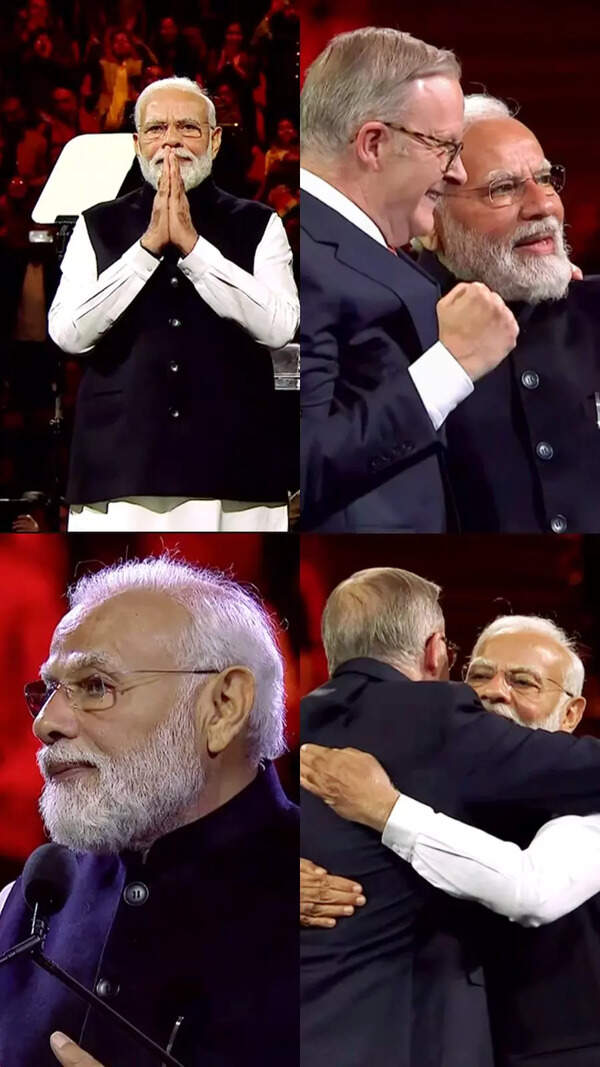- News
- City News
- ranchi News
- Cycle rickshaws slowly pedalling into pages of history in Jamshedpur
Trending Topics
Cycle rickshaws slowly pedalling into pages of history in Jamshedpur

JAMSHEDPUR: Cycle rickshaws, a very familiar means of public transport in the life of most of the people of Jamshedpur till the mid 90s, are now fighting for its existence as only a handful of them are seen. The tinkling of bells of these eco-friendly three-wheelers early morning used to serve as wake up calls for many.
“Rain or shine, they were easily available at your doorstep,” said Basudev Banerjee, a retired banker from Kadma. He used to return home from the Kadma market on a rickshaw with bags full of vegetables and the ricksha wallah with a smiling face accepted 5 as fare.
Like Basudev, septuagenarian Rohini Devi, a homemaker, missed the cycle rickshaws, which were her once favourite means of transport. She said after the late 90s, life has become very fast and people now love faster modes of travelling and slowly the cycle rickshaws were left behind in the race by petrol and diesel-run auto rickshaws in the city.
Durga Minz, one of the few existing rickshaw pullers told TOI, "After auto rickshaws started dominating the roads of the city by late 90s, very few people opted for the slow moving cycle rickshaws, so they ran out of business."
Durga, who has been pulling rickshaws for nearly 40 years, said he had purchased his own three-wheeler for 2000 in the 80s and his daily income even 10 years ago was around 200. He added now his income is not more than 300 and a major chunk of it is not by ferrying passengers but transporting goods.
He said at one time there were more than 7-8 rickshaw stands in Kadma alone, each having more than 12 three-wheelers. Now, the number has reduced to just two and the rickshaw pullers are less than a dozen. Durga said not more than 100 rickshaws are left in the city, in comparison to about 30,000 strong fleet of autos. According to the district transport office figures, the city has 67 lakh registered vehicles, including private and commercial vehicles.
The situation is quite similar in Sakchi area.
Rohit Gorai, another rickshaw puller, said his main source of income is to ferry vegetables from the wholesale market of Sakchi to retail shops. He can hardly remember when he last ferried a passenger. Rohit said even while transporting goods he is compelled to charge less than mini truck owners fearing the customers will opt for these faster modes of vehicles.
He said availability of spare parts and repair shops are difficult to spot.
Rohit hoped that as the government is promoting e-rickshaws and other battery operated vehicles as they are environment friendly, steps should be taken to preserve this zero-pollution transport.
“Rain or shine, they were easily available at your doorstep,” said Basudev Banerjee, a retired banker from Kadma. He used to return home from the Kadma market on a rickshaw with bags full of vegetables and the ricksha wallah with a smiling face accepted 5 as fare.
Like Basudev, septuagenarian Rohini Devi, a homemaker, missed the cycle rickshaws, which were her once favourite means of transport. She said after the late 90s, life has become very fast and people now love faster modes of travelling and slowly the cycle rickshaws were left behind in the race by petrol and diesel-run auto rickshaws in the city.
Durga Minz, one of the few existing rickshaw pullers told TOI, "After auto rickshaws started dominating the roads of the city by late 90s, very few people opted for the slow moving cycle rickshaws, so they ran out of business."
Durga, who has been pulling rickshaws for nearly 40 years, said he had purchased his own three-wheeler for 2000 in the 80s and his daily income even 10 years ago was around 200. He added now his income is not more than 300 and a major chunk of it is not by ferrying passengers but transporting goods.
He said at one time there were more than 7-8 rickshaw stands in Kadma alone, each having more than 12 three-wheelers. Now, the number has reduced to just two and the rickshaw pullers are less than a dozen. Durga said not more than 100 rickshaws are left in the city, in comparison to about 30,000 strong fleet of autos. According to the district transport office figures, the city has 67 lakh registered vehicles, including private and commercial vehicles.
The situation is quite similar in Sakchi area.
Rohit Gorai, another rickshaw puller, said his main source of income is to ferry vegetables from the wholesale market of Sakchi to retail shops. He can hardly remember when he last ferried a passenger. Rohit said even while transporting goods he is compelled to charge less than mini truck owners fearing the customers will opt for these faster modes of vehicles.
He said availability of spare parts and repair shops are difficult to spot.
Rohit hoped that as the government is promoting e-rickshaws and other battery operated vehicles as they are environment friendly, steps should be taken to preserve this zero-pollution transport.
Start a Conversation
FOLLOW US ON SOCIAL MEDIA
FacebookTwitterInstagramKOO APPYOUTUBE







